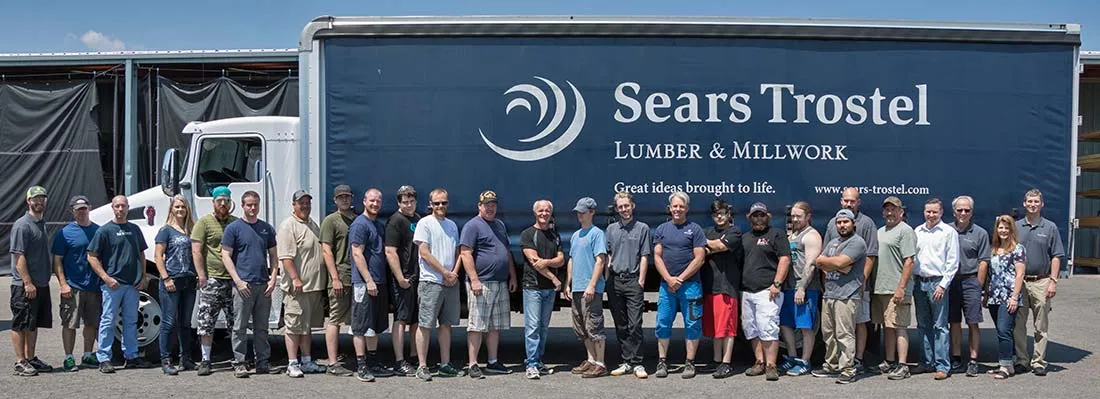Table of Contents
All industries eventually consolidate, and companies must decide which side of consolidation they want to be on. Sitting it out isn’t an option, and resisting the trend can become problematic, as doing so can ultimately take a toll on how important you remain to your suppliers and customers, according to Jeff McLendon, president, and CEO of U.S. Lumber, Atlanta, Ga. There is good news, however. Consolidating can not only help your business stay sufficiently relevant but also give your company and its employees opportunity to grow. There are many benefits of expanding through acquisitions. These processes can take time, but their value cannot be overstated. “Beyond the pure financial benefit, acquisitions immediately bolster your talent base, usually open up access to new products and customer segments, add experience, and enhance skill sets and competencies,” McLendon said. “Perhaps most notably, as you grow faster, you create opportunities for the best people, and you’re able to hold onto those individuals.” Mark Kasper, president and CEO of Amerhart, Green Bay, Wi., added, “There are a host of reasons to do an acquisition—increased territory, increased value to vendors, talent acquisition, [and] the numbers need to make sense.”Aligning the financial, strategic, and personnel dynamics can help ensure companies reap all the potential benefits consolidation has to offer. These elements have to fall into place in order to best take advantage of such an opportunity.However, “a big part of evaluating these potential changes means looking beyond solely the strategic and financial benefits a deal has for both sides, and assessing the cultural fit of the merging companies and the rationale behind the plan and execution,” McLendon noted. Kasper agreed: “Culture is critical. ‘Culture trumps strategy’ is a saying that holds true.”Building Trust
A focus on company culture and trust, particularly in regards to acquisitions, runs through the entire forest products industry. Various industry leaders emphasize the importance of understanding a company’s culture and its employees before, during, and after the acquisition process. “We want it to be clear that we are looking out for the best interests of those working at a company,” McLendon said. “All deals have tough spots, and some of them even bring out emotional challenges. If you can develop trust, instead of destroying it when you’re in the deal process, we have found that you can end up getting over those spots. This is true for the deal itself and for the integration process post-closing.”Acquisitions can be a learning opportunity for everyone involved. Mark Stock, senior vice president of human resources at Interfor, for example, said that his firm maintained “a constant open-door presence” during its acquisition of a sawmill, allowing employees to “ask questions and get support during this time of change.”The merger of Boston Cedar, Mansfield, Ma., with U.S. Lumber also provided new insights. “Going in, we knew we had to build a strong and stable relationship with any company we were taking on,” noted Mark Brennan, director of operations at U.S. Lumber. “The fact that Boston Cedar had a similar corporate culture streamlined this process and allowed us to engage with a good business that we believed in with a foundation built on trust.”In order to foster this dynamic, teams of senior managers or company leaders are often sent ahead of the acquisition to really get to know the personnel at the company being acquired. “We seek to understand the culture and employee sentiment about the upcoming change,” said Stock. “This guides us in our communication approach and helps us build relationships as we make the transition.”Brennan echoed this sentiment: “The managers are able to engage them and better understand their roles. [With Boston Cedar,] we didn’t pretend that we knew everything but rather took the time to get to know those who were experts. Building this understanding of what people did, and who they were, allowed us to better form the kind of environment we wanted to create. We also found that being as transparent as we can be with our people, our suppliers and our customers all has helped to continue to build that trust.”Stock also emphasized the importance of transparency. “Transparent communications and being accessible for employees when they have questions or concerns are the tools that work best during all phases of the acquisition process,” he said.Ensuring that current employees feel welcome and invested during an acquisition can streamline the process for all parties, as well as ease the burden of transition. Stock noted that acquisitions are “an investment in the operation and its people,” and it is, therefore, important to show employees that they are valued. At Interfor, for example, “employees receive a signing bonus in their welcome package,” he said. The bonus showcases employee value, as well as “creates goodwill as we implement new employee practices and systems.”Stock also noted that the company makes a promise to employees “to build value for them by providing a career where they can contribute, grow, and prosper.”
Brennan also noted the importance of looking for opportunities for people already in place at a company. “It was important for us to be able to provide the talented individuals we acquired with opportunities to grow—both professionally and personally,” he said. Spending time with the workers and within the company can, therefore, allow the incoming company to identify opportunities for somebody to transition into a new role.Acquisitions can be a scary process for the company that is being acquired; therefore, it is critical to build a relationship based on trust from the start so that everyone involved knows their best interests are being kept in mind. “It is important to value the knowledge you are acquiring,” said Stock. “Listen well and seek to understand the perspective of new employees. An open, accessible approach to building relationships with new employees is critical to their success and ours,” he advised.Looking Forward
It is important to keep looking ahead when responding to the coming wave of consolidation. This is facilitated by the increasingly prominent role of technology within the industry. “As new systems increasingly play a larger and broader role across the business, it becomes easier to spread your people and core infrastructure across the bigger company,” said Lawrence Newton, executive chairman of U.S. Lumber.
Kasper also noted that technology, “when properly implemented, can do a few things, with one of the most important being taking cost out of the equation or spreading the corporate cost over more sales.”
Stock added that developments in technology helped Interfor remain proactive, rather than reactive, during the acquisition process.Smaller companies may have a more difficult time keeping up with industry progress, Kasper said, which is why bringing in a business can be beneficial to both parties. Pairing the desire all companies have to succeed with the proper investments makes it easier to build an environment of trust and opportunity, which will ensure that people on both sides of a consolidation deal buy-in with both their heads and their hearts.





